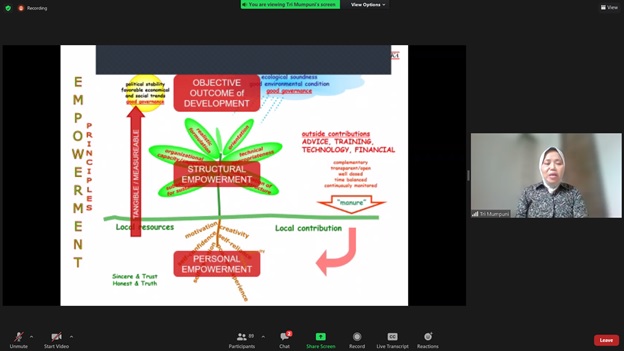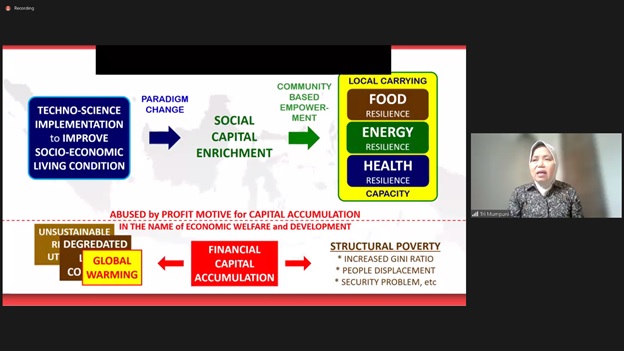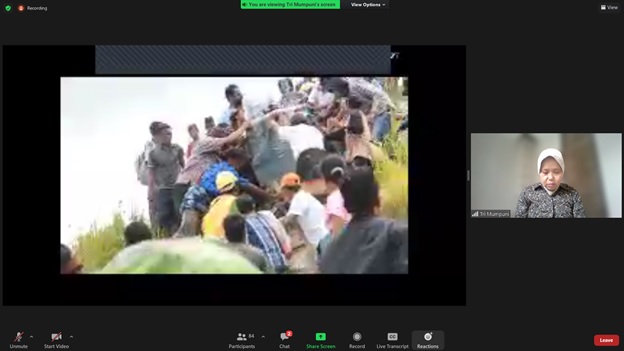Our planet is becoming increasingly unpredictable. Floods, earthquakes, tsunamis, and other natural disasters occur repeatedly. Not to mention the rapidly changing climate, causing crop failures, droughts, snow melting on mountains, iceberg melting, etc. So, how to apply the concept of sustainable development so that it has a positive impact on humans? As a result, ITB hosted a collaborative guest lecture with FMIPA-SBM-SITH by inviting the director of IBEKA, Tri Mumpunito, to provide an in-depth understanding of the SDGs in their complexities.
 Tri, who received the 2012 Ashden Awards as a provider of electricity and water in more than 60 remote locations in Indonesia, explained the root causes of the problems in our competitive education system.
Tri, who received the 2012 Ashden Awards as a provider of electricity and water in more than 60 remote locations in Indonesia, explained the root causes of the problems in our competitive education system.
“In reality, we are pursuing the common good. But because we are constantly taught to fight and compete, we continue to think about seizing and controlling rather than cultivating and sharing. Over time, not only humans are oppressed, but the environment and nature are conquered without regarding for the future potential harms,” Tri stated.
Tri also mentioned in his presentation that life is a spiritual journey. It is a soul transformation; life is not only about building wealth but also benefiting a large number of people. With empathy and a collaborative spirit, empowering local resources can thrive and become local inclusion for the surrounding community.
 West Nusa Tenggara Development
West Nusa Tenggara Development
development is inseparable from measurement. From planning to implementation, becoming an independent system requires measurement.
IBEKA used to do talent scouting for the locals to conduct sustainable development, and we taught them. They will return to contribute to the community and ensure that development investments are properly carried out. Furthermore, IBEKA continues to assist by providing the necessary network access.
For example, IBEKA builds a village in West Nusa Tenggara. They built the entrance to the barren village. They then build infrastructure and support facilities. After all of the supporting infrastructure is in place, they stretched the arid lands until they finally provided life for the environment, whether plants, animals, or humans, and their social lives.
Tri also discussed risk mitigation that may occur during regional and community empowerment at the end of the meeting.
“There will always be risks whenever there is an event. As a result, we must all work together to manage the risk. We invite many parties to participate and collaborate. The most important aspect is communication with the people so that resource management and regional development projects can proceed as planned,” Tri concluded.





